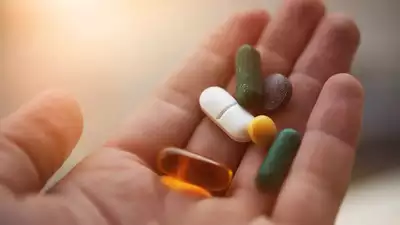Many people take supplements to enhance their health, boost energy, or improve performance. While these supplements may seem beneficial, some common ones can actually harm your kidneys if used improperly or in excess. Your kidneys play a crucial role in filtering waste and toxins from the body, so it’s important to be cautious about what you consume. Let’s take a look at some common supplements that can secretly harm your kidneys.
1. Creatine: Popular in Sports Supplements
Creatine is one of the most widely used supplements, particularly by athletes and bodybuilders. It’s known for increasing strength and muscle mass. While it is generally safe in recommended doses, taking high doses or using it over extended periods can put a strain on your kidneys. Creatine works by increasing the water retention in your muscles, which can lead to dehydration. Dehydration reduces kidney function and puts extra stress on your kidneys to filter out waste and excess fluids.
Tip: If you choose to use creatine, ensure you stay well-hydrated. Avoid taking large doses, and follow the recommended usage guidelines.

2. Vitamin D: Too Much Can Be Harmful
Vitamin D is essential for bone health, immune function, and overall well-being. Most people get their vitamin D from sunlight, but it is also available in supplements. While adequate vitamin D levels are important, taking too much can harm your kidneys. High doses of vitamin D can cause a buildup of calcium in the blood, which can lead to the formation of kidney stones. Over time, excess calcium can damage kidney tissue and impair kidney function.
Tip: Always follow the recommended dosage for vitamin D. If you are taking supplements, consider getting your vitamin D levels tested to avoid any excess.
3. Herbal Supplements: Misleading Health Benefits
Herbal supplements are often marketed as natural alternatives to prescription medications. However, some herbs can have serious side effects, especially on kidney function. Herbs like ginseng, st. John’s wort, and ephedra are commonly associated with kidney damage. These supplements can alter kidney function, affect blood pressure, and increase the risk of kidney failure if taken in large quantities or over long periods. Despite being natural, herbal supplements can have potent effects on the body, including your kidneys.
Tip: Always check with your healthcare provider before using any herbal supplements, especially if you have existing kidney conditions. Just because something is natural doesn’t mean it’s safe for everyone.
4. Nonsteroidal Anti-Inflammatory Drugs (NSAIDs): Over-the-Counter Risk
NSAIDs like ibuprofen, naproxen, and aspirin are common over-the-counter pain relievers that many people use without thinking twice. However, frequent or long-term use of NSAIDs can significantly impact kidney health. These medications can reduce blood flow to the kidneys, making it harder for them to filter waste from the body. In some cases, prolonged NSAID use can lead to acute kidney injury, especially in people with pre-existing kidney issues or those who are dehydrated.
Tip: If you rely on NSAIDs for pain relief, try to use them sparingly and for short periods of time. If you have kidney problems or are taking other medications, always consult your doctor before using NSAIDs.
Conclusion: Take Supplements with Caution
While many supplements are beneficial for health, it’s crucial to be aware of the hidden risks they pose to your kidneys. Always use supplements in moderation, follow recommended dosages, and consult with your healthcare provider if you have any concerns. Kidney health is vital for overall well-being, so it’s important to protect them by being mindful of what you put into your body.
Read More :
https://thefirstcritic.com/ipl-2025-kolkata-knight-riders-secure-14-run-win-over-delhi-capitals/
FAQs
1. Can creatine harm my kidneys?
Yes, taking excessive amounts of creatine, especially over a long period, can strain your kidneys and cause dehydration, which negatively affects kidney function.
2. Is vitamin D safe for my kidneys?
Vitamin D is safe when taken in recommended amounts, but excessive intake can lead to high calcium levels, increasing the risk of kidney stones and kidney damage.
3. Which herbal supplements affect kidney health?
Herbs like ginseng, st. John’s wort, and ephedra can cause kidney damage if taken in large quantities or over extended periods.
4. Are NSAIDs bad for my kidneys?
Yes, frequent use of NSAIDs, especially in high doses, can reduce kidney function and lead to kidney damage over time. Always use them cautiously.













More Stories
How “Lockdown-Level” Emissions Cuts Might Clean Delhi’s Air by 2040
Cyclone Ditwah: IMD Issues Red Alert for Tamil Nadu, Puducherry, and Southern States
Hong Kong Fire Death Toll Climbs to 55; Dozens Still Missing as Blaze Burns Into Second Day